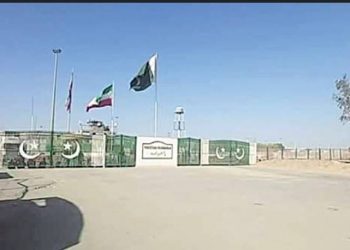After enduring months and years of lackluster economic performance, the most recent report from the World Bank indicates that Pakistan’s economy actually contracted during the fiscal year 2023. While the bank’s latest report did acknowledge factors beyond Pakistan’s control, such as the 2022 floods and the Ukraine war, as well as related global economic disruptions, it predominantly attributed the blame to internal “Pakistani” factors, ranging from political instability to controversial economic decisions.
The UN Chief António Guterres also called upon the world community to fulfill their promises made with Islamabad at the Paris Conference. The 0.6% contraction was also held responsible for pushing the poverty rate past 39% last year, leading to an additional 12.5 million Pakistanis falling below the poverty line. The report was notably lacking in positive news, even in its future projections. According to the leading World Bank official in Pakistan, “meticulous economic management and substantial structural reforms will be imperative to ensure macroeconomic stability and growth.”
Nevertheless, the success of these stringent reforms, some of which have already been implemented, hinges on various variables. Pakistan’s economy remains ill-equipped to absorb significant domestic or external shocks. Additionally, the decreasing allocation of public funds for human development places the country in an even more vulnerable position, making swift recovery more challenging and diminishing long-term growth potential.
These concerns are compounded by the growing risk and potential cost of climate-related threats for which Pakistan remains inadequately prepared. This paints a grim picture that does little to restore investor confidence, which is vital for achieving stability and sparking economic recovery.
Furthermore, the World Bank emphasizes that long-term stability relies on measures that have historically proven extremely difficult to implement, either due to political considerations or the associated costs of adaptation. These measures include cutting tax exemptions and subsidies, reforming state-owned enterprises, and addressing issues within the energy sector. Pakistan’s government must go for concrete reforms in line with WB and the IMF recommendations to prevent an economic collapse.


























